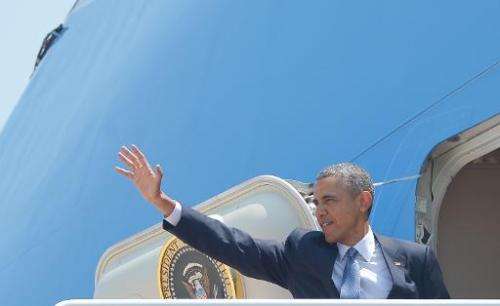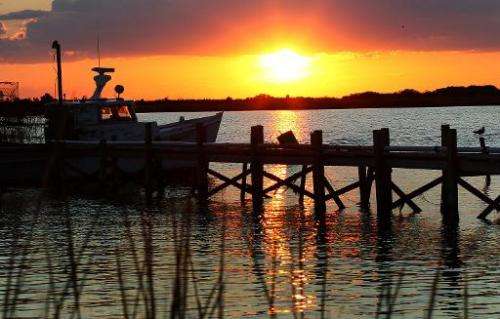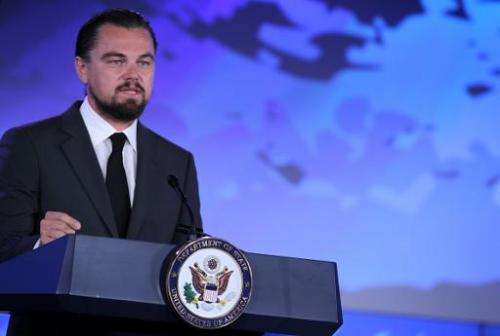US to expand marine park, clamp down on 'pirate' fishers

The United States Tuesday unveiled "historic" steps to combat illegal fishing and proposed plans to create the world's largest marine sanctuary in a bid to help save the world's besieged oceans.
"We all know how fragile our planet can be," Obama said opening the second day of a landmark conference dubbed "Our Ocean" urging everyone to "redouble our efforts."
"Let's make sure that years from now we can look our children in the eye and tell them that, yes, we did our part, we took action, and we led the way toward a safer, more stable world," he added in a video address.
Leaders from more than 80 countries are holding a two-day conference with scientists and industry experts hosted by the State Department aiming to draw up an action plan to clean up the oceans.
The White House said Obama had ordered his cabinet to look at ways to expand a US marine sanctuary in the central Pacific Ocean where "tropical coral reefs and associated marine ecosystems are among the most vulnerable areas to the impacts of climate change and ocean acidification."
In his video address, the US president said he had also directed the US government to "build a national strategy to combat black-market fishing."
"Rising levels of carbon dioxide are causing our oceans to acidify. Pollution endangers marine life. Overfishing threatens whole species as well as the people who depend on them for food and their livelihoods," Obama said.
The plans to expand the Pacific Remote Islands Marine national monument from 87,000 square miles to around 782,000 square miles would create the world's largest marine sanctuary, the Washington Post said.

The White House said that before the exact scope of the sanctuary was drawn up "we will consider the input of fishermen, scientists, conservation experts, elected officials, and other stakeholders."
But it could ignite a new battle with Republicans in Congress, angered by Obama again using his executive powers to bypass the US legislature.
"If we ignore these problems, if we drain our oceans of the resources we won't just be squandering one of the humanity's greatest treasures, we'll be cutting off one of the world's major sources of food and economic growth," Obama warned.
Bleached corals
He won support from Hollywood actor Leonardo DiCaprio, an avid diver, who pledged his foundation would pump another $7 million over the next two years into projects to help the oceans.
"I've witnessed environmental devastation first hand," DiCaprio told the conference, recalling two dives he made some 18 years apart on the Coral Reef in Australia.
"What once had looked like an endless underwater utopia is now riddled with bleached coral reefs and massive dead zones."

US Secretary of State John Kerry said the move to clamp down on illegal fishing meant all seafood sold in the United States would be "sustainable and traceable."
Environmentalists also welcomed Obama's plans as "a historic step forward in the fight against seafood fraud and illegal fishing worldwide."
"This initiative is a practical solution to an ugly problem and will forever change the way we think about our seafood," said Beth Lowell, campaign director with the international advocacy Oceana group.
A recent report found that between 20 percent and 32 percent of wild-caught seafood imported into the US in 2011 came from illegal or "pirate" fishing.
"Because our seafood travels through an increasingly long, complex and non-transparent supply chain, there are numerous opportunities for seafood fraud to occur and illegally caught fish to enter the US market," Lowell said.
© 2014 AFP



















